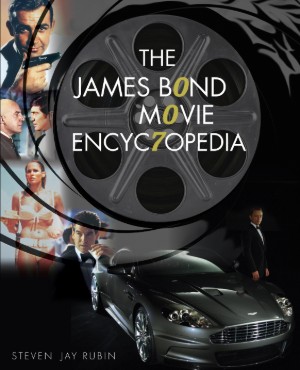(November 3, 1933–January 30, 2011; birth name: John Barry Prendergast): Five-time Oscar-winning British film composer best known for his work on the James Bond films. Barry’s contribution to the series was enormous, especially in the early days, when the tenor of the films was deadly serious.
Barry’s Bond theme, officially credited to Monty Norman, is arguably the most famous signature theme in film history and a trademark of the Bond movies produced by Eon Productions. When the Jack Schwartzman–produced Never Say Never Again opened in 1983 without the signature theme, one of the common complaints was the lack of “real James Bond music.”
Barry’s show business roots date back to his maternal grandfather, a sea captain who used his pension to purchase a repertory theater in Lancaster, England, which he owned and operated until his death. Barry’s mother was an accomplished piano player, and his father, John Xavier Prendergast, took over his father-in-law’s theatrical operation, later expanding it into a chain of theaters and cinemas.
Young Barry attended convent school until the age of nine, when he left for a public school education in London. He followed his mother’s example at first and practiced piano, but by the time he was sixteen he had taken a liking to the trumpet. He was also studying harmony and orchestration with Dr. Francis Jackson, the master of music at York Minster cathedral, while also playing trumpet in a local dance band. In 1952, Barry was drafted and spent three years in the Green Howards Regiment, which was sent to Egypt and Cyprus. Draftees were required to spend only two years in the service, but Barry wanted to continue to study music in the regimental band, so he agreed to sign on for the extra year.
On Cyprus, he started a practical correspondence course with Bill Russo, jazz bandleader Stan Kenton’s orchestra arranger in the United States. Barry began to arrange the music for his regiment, and when he left the army in 1955, he was practically guaranteed a good orchestral job in London.
It was at this point that Bill Haley and Elvis Presley appeared on the music scene, affecting the futures of all young musicians everywhere. Barry was no exception; he spent every spare moment listening to the new sound and preparing his own first rock and jazz rendition.
In 1956, Barry formed the John Barry Seven in London with three army buddies and their friends. He was the first bandleader in England to employ an electric bass guitar player. Barry and his band dived headfirst into the rock ’n’ roll revolution, and within two years they were the leading jazz-oriented group in England.
Their success led directly to offers to score feature films, the first of which was a little movie entitled Beat Girl, which was released by Renown Pictures in 1960. Between 1960 and 1962, Barry and his group toured England and worked on the scores of three more films: Never Let Go (1960), The Amorous Mr. Prawn (1962), and The L-Shaped Room (1962).
Barry’s involvement with the Bond movies began in late 1962, when he received a call from Noel Rogers of United Artists Records. Barry had recorded two hit records for United Artists. One called “Hit and Miss” was a signature tune for a BBC program called Juke Box Jury, and the other was an English version of the American hit “Walk Don’t Run.” With two important instrumentals on the charts, UA was interested in Barry for the first Bond film, Dr. No. Barry learned from Rogers that 007 producers Broccoli and Saltzman were disenchanted with a Bond theme created by composer Monty Norman and that Dr. No needed a vibrant theme as soon as possible.
Considering the impact his theme would have on the future of the series, it is ironic that Barry completed his job without ever having seen Dr. No. He was simply handed a timing sheet and told to come up with a two-and-a-half-minute theme that could fit conveniently into the film’s title track. Although he composed the piece from scratch, it was not entirely original. He borrowed from his own instrumental compositions, especially a little tune titled “Bee’s Knees,” which featured that same distinctly plucked guitar.
Little did Broccoli and Saltzman know when they first heard the Bond theme how popular it would become. Barry’s fee for the James Bond theme was 200 pounds, less than $1,000. Because of the producers’ contract with Monty Norman, Barry would never receive credit for creating the most famous theme in movie history. In fact, it is Norman’s name—not Barry’s—that always appears in a film’s credits if the Bond theme is used.
Still, the success of the first film encouraged the creative relationship between Barry and the producers, which extended to From Russia with Love, Goldfinger, Thunderball, You Only Live Twice, On Her Majesty’s Secret Service, Diamonds Are Forever, The Man with the Golden Gun, Moonraker, Octopussy, A View to a Kill, and The Living Daylights.
Although his Bond work never netted him Academy Award consideration, Barry won five other Oscars, for Born Free (song and score, 1966), The Lion in Winter (score, 1968), Out of Africa (score, 1985), and Dances With Wolves (score, 1990).

